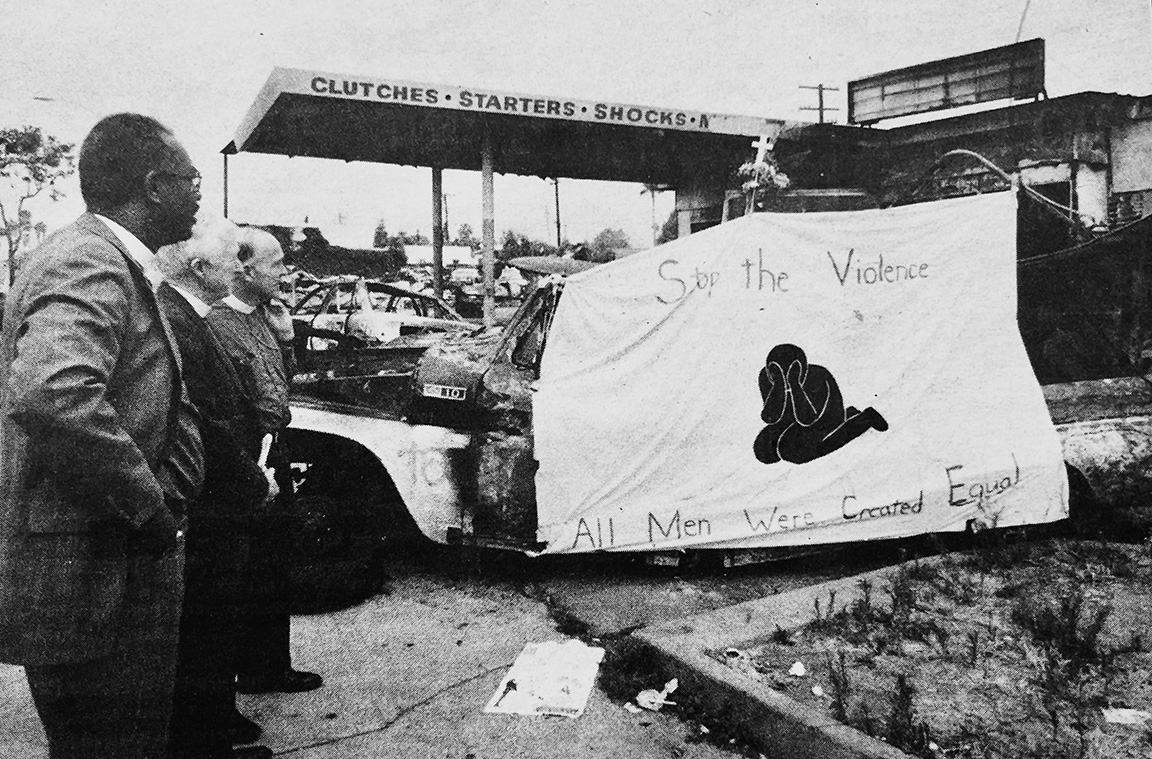
Surveying sign affixed to burned truck at L.A. intersection of Florence and Normandie in wake of 1992 uprising are (from left) Bishop Suffragan Chester Talton, Episcopal Church Presiding Bishop Edmond Browning, and Bishop Diocesan Frederick Borsch. (Episcopal News photo by Al Bender)
[The Episcopal News – April 27, 2022] The 1992 Los Angeles riots – which left 63 dead and property damage exceeding $1 billion during five days of reaction to the April 29 acquittal of police officers charged with beating Rodney King – compelled local Episcopalians into action that continues to work for economic and racial justice locally and beyond.
Marking this 30-year milestone is the Episcopal Community Federal Credit Union – founded within six months of the unrest to assist directly with microloans to businesses and individuals lacking access to traditional banking. More about the credit union, including its search for a successor to its founding CEO, is here.
Meanwhile, ongoing initiatives confronting racism were joined in 2021 by the Commission on Gospel Justice and Community Care, formed by Bishop John Harvey Taylor in response to the murder of George Floyd in 2020, to focus on resources for community policing and mental health.
In immediate response to the 1992 unrest, then-Bishop Frederick H. Borsch underscored aspects of “outrage and hope” in calling the diocese to action. (His later 1996 book by the same title added context to the church’s mission of serving society’s most vulnerable members.)
Links to Borsch’s original message to the diocese as well as his testimony to the Christopher Commission, together with key 1992 coverage by The Episcopal News, follow here:
- Outrage and Hope in Los Angeles
- Rodney King and Dignity: Testimony to the Christopher Commission
- As Southland burns, Church offers relief, seeks answers
- Presiding Bishop visits to ‘stand with’ diocese during turmoil
- Parishes lived through violence, now cope with aftermath
- ‘Build bridges, reach out,’ Jesse Jackson urges Pasadena church
— Canon for Common Life Robert Williams is diocesan historian/archivist.
